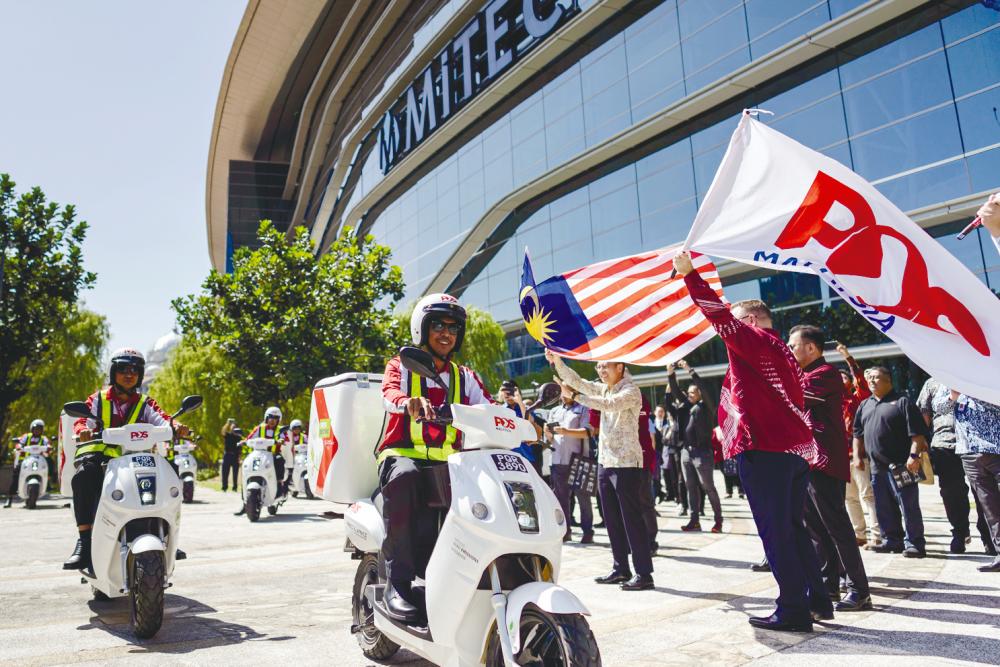KUALA LUMPUR: The country’s main postal service provider, Pos Malaysia Bhd, has launched its sustainability roadmap to achieve net zero carbon emissions for its operations by 2050.
As part of its transformation, the sustainability roadmap also outlines Pos Malaysia’s commitment to a 30% reduction in its Scope 1 and Scope 2 emissions by 2025.
Pos Malaysia will focus on six initiatives – alternate delivery methods, fleet optimisation, green buildings, waste management, sustainable packaging, and digital learning.
According to group CEO Charles Brewer, Pos Malaysia is already using electric bikes across Kuala Lumpur in an expanded proof of concept, and expects to have 200 electric bikes in operation by Q3’23.
“By 2025, 28% of the entire fleet will be electric, and 100% by 2030. Along with the electric fleet, Pos Malaysia will be utilising best-in-class telematics to improve driver safety and further reduce the emissions,” he told reporters at the launch ceremony officiated by Communications and Digital Minister Ahmad Fahmi Mohamed Fadzil.
Brewer also mentioned that one of the advantages of electric bikes is that they require virtually zero maintenance, have no fuel costs, and come with much lower insurance rates.
In addition, when looking at the total cost of ownership, electric bikes are comparable to ICE bikes (traditional bikes with internal combustion engines) and the cost will only get lower with time.
“In fact, the total cost of ownership is virtually the same for both electric and ICE bikes, with no significant incremental cost associated with owning an electric bike. Therefore, the actual operating cost is the same whether you have an electric or an ICE bike,” he said.
He said that the sustainability target demonstrates Pos Malaysia’s commitment to support global efforts in keeping global warming below 1.5°C.
“Pos Malaysia has a responsibility to help lead the way to a more sustainable future. Our climate commitments address Pos Malaysia’s operations from all angles. We will transform our fleet to electric, retrofit our buildings, source renewable energy, and educate our employees,” he said.
Pos Malaysia has already added solar panels to three facilities, which are capable of generating an estimated three million kWh of electricity annually. That equates to offsetting 1,450 tonnes of carbon dioxide equivalent (tCO₂e) or the electricity used by 282 homes per year.









